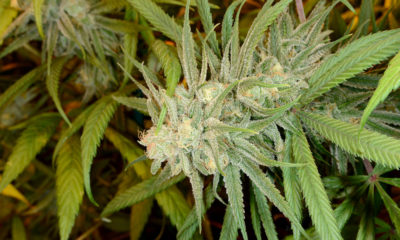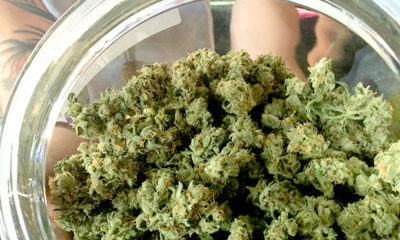
Medical
The Nation’s Worst Medical Marijuana Law May Finally Improve
Pity would-be patients in Georgia, where cannabis oil is legal but illegal to produce or procure. This may finally change.
There are bad medical-marijuana laws. There are laws that ban cannabis in its most prevalent and useful form, laws that create artificial scarcity and thus inflate value or reduce access, laws that create a de-facto state monopoly or encourage corruption or trigger an unnecessary years-long process before sick people can access regulated cannabis.
And then there is Georgia.
Competition for the worst medical cannabis law in the United States is stiff — and it is debatable whether a bad law that creates a false hope is worse than outright prohibition — but owing to its unique combination of false hope and Biblical absurdity, Georgia may be the winner.
Cannabis oil with no more than 5 percent THC is “legal” in Georgia. Has been since 2015. As of now, more than 8,400 patients with 16 medical conditions — with severe seizures and terminal cancers, mostly — have physicians’ recommendations to obtain and use cannabis oil, as the Atlanta Journal Constitution recently noted.
But not one of them has any legal marijuana. There are no dispensaries, no manufacturing outfits, and no cultivation centers. All of those are illegal — meaning access to medical marijuana supposedly legalized under Georgia law is also illegal.
Got it? This “manna from heaven” situation has forced Georgia patients to either try hemp-derived CBD oil or to continue patronizing the underground market.
This patent absurdity appears to have shamed Georgia lawmakers into taking action. As per the AJC, on Tuesday, the Georgia House passed a bill that, if signed into law, would permit marijuana cultivation, testing, and distribution plus sales at 60 dispensaries.
“It was hypocritical to me to pass bills to let this substance be available to the sickest folks that needed it, the worst, and yet we didn’t give them the access to get it,” said state Rep. Alan Powell, according to the newspaper.
The bill will now advance to the state Senate where it will need approval before it can reach the desk of Gov. Brian Kemp, who in the past has said that he is “open” to a “research-based expansion” of the state’s marijuana program.
What that means, exactly, is unclear — as is well known, most research in the United States into marijuana’s efficacy is stymied by federal prohibition, which makes cannabis difficult to obtain and dissuades most research centers from approving projects.
To do this, as per usual, Kemp and state lawmakers will risk alienating law-enforcement groups, who are already claiming (with no research-based evidence, it should be noted) that even a low-THC oil-only law will somehow create chaos.
“The sheriffs are serious when they say that marijuana is a dangerous, addictive gateway drug,” said Terry Norris, the executive director of the Georgia Sheriffs’ Association, in comments to the newspaper.
“Even though we’re not talking about legalizing for recreational purposes, we believe all the notoriety of this discussion will lead to increased marijuana use by children,” said Norris, who said that improving the country’s silliest marijuana law is “a very treacherous and dangerous path.”
Hyperbole aside, even if the law is approved, Georgia’s law would still be pretty bad. Flower would not be allowed and the oil cannot legally be vaped or smoked, meaning patients would not be allowed to consume cannabis in the fashion in which relief is most quickly obtained.
TELL US, do you have access to medical marijuana?




















